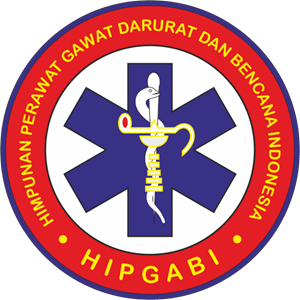PEMBERIAN TRANSCUTANEOUS ELECTRICAL NERVE STIMULATION (TENS) MENURUNKAN INTENSITAS NYERI PADA PASIEN BEDAH UROLOGI DI RUANG RAWAT INAP MARWAH RSU HAJI SURABAYA
Downloads
Introduction: Urology surgical is a current surgical procedure for tractus urogenitalis disease. Issue in post urology surgical is a pain. Transcutaneous electrical nerve stimulation (TENS) is one of the nursing intervention that uses low-voltage electrical current for pain relief. TENS can improve pain mechanisms and release of endorphins to reduce pain. The aims of this study was to determine the effect of TENS on pain intensity of postoperative urology surgical patient in Haji Surabaya Public Hospital.
Methods: A quasy experiment with non randomized control group pre post design was used in this study. Recruting sample by purposive sampling. There were 12 samples (6 respondents as the control group and 6 respondents as the treatment group) which recruit using purposive sampling. Independent variable was TENS. Dependent variable was pain intensity. The pain was measured by Visual Analog Scale (VAS). Data were analyzed using Wilcoxon Signed Rank Test and Mann Whitney.
Result: Results of this study showed that there was a significant effect of TENS on pain intensity of postoperative urology surgical patient in Haji Surabaya Public Hospital. In the treatment group Wilcoxon Signed Rank Test p=0.084 (p<0.05), while in the control group p=0.020 (p<0.05). Mann Whitney=0.003 (p<0.05).
Discussion: It can be concluded that there was a significant effect of TENS on pain intensity of postoperative urology surgical patient in Haji Surabaya Public Hospital. TENS is recommended for the independent nursing intervention to reduce postoperative urology surgical pain. Based on this result can be done to further research should analyze several factors that affects pain patients after surgical urology. Variable confounding are ethnic and cultural values, stage of development, environment and individual support, the experience of surgery pain, anxiety and stress, controls complication post surgical happened, alternative medication history, drugs
history, surgical history and disease history.
Apfelbaum, JL, Chen, C, Mehta, SS & Gan, TJ, 2003. Postoperative pain
experience:results from a national survey suggest postoperative pain
continues to be undermanaged. Anesthesia Analgesia, US national
library of medicine, vol. 97, no. 2, hal. 534-540
Bjordal, JM, Johnson, MI & Ljunggreen, AN, 2003. ‘Transcutaneous electrical nerve stimulation (TENS) can reduce postoperative analgesic consumption. A meta-analysis with assessment of optimal treatment parameters for postoperative pain', European Journal Pain , vol 7, no. 8, hal. 182-187
Corwin, EJ, 2009. Buku Saku Patofisiologi, Edisi Revisi 3, EGC, Jakarta
Gruendemann, BJ & Fernsebner, B, 2005. Buku Ajar Keperawatan Perioperatif, volume 2, EGC, Jakarta
Johnson, M, 2008. Transcutaneous electrical nerve stimulation, electrotherapy: evidence based practiv=ce, Churchill
Livingstone, Edinburg
Honorio, TB, 2008. Practical Management of Pain, Edisi 5, Elsevier Mosby,
Philadelphia Islami, 2012. Pengaruh penggunaan ketamin terhadap kejadian menggigil pasca anestesi umum, http://eprints.undip.ac.id/, diakses tanggal 24 Juli 2014
James, J, Baker, C & Swain, H, 2008. Prinsip-Prinsip Sains untuk
Keperawatan, EMS, Jakarta
Kee, JL & Hayes ER, 1996. Farmakologi: Pendekatan Proses Keperawatan, EGC, Jakarta
Knight, KL & Draper, DO, 2008. Theraupetic modalities, Wolters Kluwer, United States
Kozier, B, 2010. Buku Ajar Fundamental Keperawatan: Konsep, Proses, dan Praktik, Edisi 7, Volume 1, EGC, Jakarta
Lima, PM, Farias, RT, Carvalho, AC, da Silva, PN, Ferraz, FNA & de Brito, RF, Transcutaneous electrical nerve stimulation after coronary artery
bypass graft surgery, US national library of medicine, Vol. 26, no. 4, hal.
-6, http://www.ncbi.nlm.nih.gov
McCloskey, JC & Bulechek, GM, 2000. Nursing Interventions Classification
(NIC) Edisi 3, Mosby Year Book, St. Louis
Megawati, 2010. Gambaran Faktor - Faktor yang Mempengaruhi respon nyeri pada pasien post laparatomi di ruang B2 RSUP H. Adam Malik Medan, www.unmam.com, diakses tanggal 2 April 2014
Nurhafizah, 2012. Strategi Koping dan Intensitas Nyeri Pasien Post Operasi di Ruang Rindu B2A RSUP H. Adam Malik Medan, http://jurnal.fk.unand.ac.id, diakses tanggal 14 Juli 2014
Potter, PA & Perry, AG, 2005. Fundamental Keperawatan Konsep, Proses, dan Praktik, Volume 2, Edisi 4, EGC, Jakarta
Sjamsuhidajat, 2013. Buku Ajar Ilmu Bedah, Edisi 3, EGC, Jakarta
Smeltzer, SC & Bare, BG, 2008. Buku Ajar Keperawatan Medikal Bedah, Volume 2, Edisi 8, EGC, Jakarta
Tucker, SM, Canobbio, MM, Paquette, EV & Wells, MF, 2008. Standar Perawatan Pasien:Proses Keperawatan, Diagnosis dan Evaluasi, Edisi 5, EGC, Jakarta
William, L & Wilkins, 2008. Nursing. Perfecting clinical procedures, Wolters
Kluwer, United States of America
1. The journal allows the author to hold the copyright of the article without restrictions.
2. The journal allows the author(s) to retain publishing rights without restrictions.
3. The legal formal aspect of journal publication accessibility refers to Creative Commons Attribution (CC BY).

















